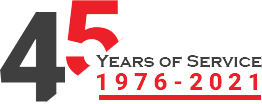So you need to select a Customs broker? Well, the first thing to understand is that the broker functions as your legal agent for declarations to Customs and other government agencies regarding imports. As such, those agencies consider their actions to be yours, and you bear responsibility. Thus, there are a number of considerations that should influence your decision.
All brokers provide the fundamental service of getting shipments released by Customs and, if necessary, other government agencies that might have jurisdiction over your goods, such as Food & Drug, Department of Transportation, Environmental Protection Agency and Fish & Wildlife. They file information declaring what the goods are, their value, the tariff classifications believed to apply, the quantities being imported, and an estimate of the applicable duties and processing fees.
This sounds straightforward. But those determinations are not necessarily that easy. For example, what is the proper value to be entered while still taking advantage of all non-dutiable charges? The Harmonized Tariff has 22 sections and 98 chapters, each with its own interpretive head notes – in addition to the general head notes to be applied throughout – all culminating in more than 23,000 individual tariff classifications, each of which is subject to different duty rates depending on whether any one of about a dozen special tariff preference programs might apply.
Here are Some Points for Consideration and Questions to Ask
Knowledge
How many licensed brokers do they employ? Do they handle other importers who bring in what you do so there’s familiarity with your product line? How long have they been transacting business in the port(s) where you import (they need to know the local idiosyncrasies)? What classification and valuation tools do they have available to help them make the proper declarations for you? Also, look for a broker who is a member of both their local community, the National Customs Brokers association of America (NCBAA) and the Canadian Society of Customs Broker (CSCB).Valuable information and training are conducted by those organizations, and by participation in their various committees, it’s often possible to help shape local and national Customs and carrier positions
Account Management
How will they organize themselves to handle your transactions? Will they be doing the entries themselves or sub-contracting to someone else? Will one or more of their licensed brokers be actively involved in your clearances? Will they be allocating sufficient staff resources to handle your volume? Will their team be available on weekends and holidays – either for regular attention or emergencies?
Service Offerings
In addition to basic entry services, does the broker offer subsidiary or value-added services such as writing your Customs bonds, placing cargo insurance so your goods are not left to the limited liability of the various carriers and/or warehouses, arranging warehousing and direct distribution, forwarding services for returned goods, and their own ocean and air transport services to meet all of your size and transport time requirements? Do they offer consultation on transport and logistics solutions – and on meeting Customs marking and other requirements? A tier-one broker has a well-rounded and comprehensive service offering.


